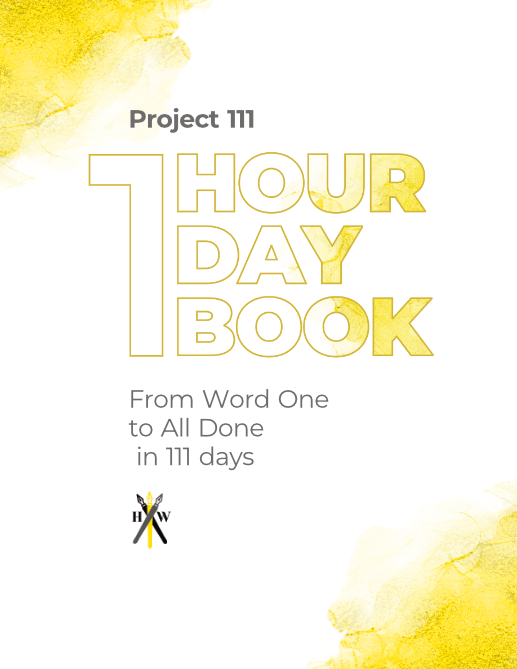Writing challenges: something that lots of ancient blogs and websites offer. They can look like short story prompts, creative ways to outline your novel, certain words to use when you have a writing session, or just a time-based challenge like NaNoWriMo (National Novel Writing Month).
With all the variety of challenges, you may think, “Well, I’ve done well enough so far with just my one challenge”, or “Writing itself is a a challenge enough. Why would I want to add to that?”
Whatever your response may be, writing challenges can be an effective way to stir up your imagination and get your creative juices flowing. These challenges help in both fiction and creative non-fiction. Challenges work like exercise and can strengthen all your creative writing skills
In this article, we’ll talk about various writing challenges and their benefits. No one challenge will suit every writer, so hopefully you’ll find something that speaks to you and will help you improve your writing.
So Why Do a Writing Challenge?

Writing challenges have many functions, but their ultimate goal is to improve some aspect of your writing. I can’t think of a single writing challenge that will improve every aspect of your writing (except maybe finishing your first novel), but different challenges will improve different sections of your writing.
For instance, a challenge like NaNoWriMo will improve your writing consistency and your writing speed.
Some challenges will help you with outlining, some will help you come up with ideas, some will improve your vocabulary.
Basically, if you notice that you have a problem with a certain area of your writing, finding an associated writing challenge could be the very thing you need to improve in that area.
If you have trouble finding what part of your writing needs improvement, you could try a bunch of different writing challenges and find what’s the hardest for you to do. Some of the challenges are innately hard, but if you do a writing challenge that works on descriptive imagery and you struggle with it, you might have found the part of your writing that needs the most work.
If you’re anything like me (or plenty of other writers), you may think that all of your writing skills need improvement. If that’s the case, then you can do different kinds of challenges as warm-ups before working on whatever project you have in front of you.
Writing Prompts

The first type of writing challenge is one that you’ve probably done if you’ve ever taken a creative writing class or learned any sort of creative writing in your middle school to high school classes.
Writing prompts. Some people love them; others despise them with the entirety of their souls.
One reason people hate writing prompts is the restriction to creativity. Other people see them as a primer to their own creative procedures. How can they both be right?
The truth is everyone’s imagination is different and draws from different sources. What a writing prompt has the potential to do is work as a jumping pad.
For some people, the writing prompt gives them everything they need to write a story. They like the constraints and the challenge of including certain prescribed story elements.
Some people whose imagination needs very little stimulation may despise the writing prompt, but I think they see it as too restrictive. For those people, my suggestion would be to watch their thoughts after reading the prompt. It’s entirely possible that whatever story comes to your head may seem more enjoyable to write than the prompt suggests, even if they don’t include the suggested elements.
The important thing for a writer like this to do is determine how long of a story they’ll make from a prompt like this (or whatever prompt-adjacent ideas come to their head).
Writing prompts can be just the beginning of the exercise. You can use the prompt as a way to work on concision, outlining, imagery, or whatever you find that you need to improve.
Another reason to practice using writing prompts is that they are often the way creative writing journals present a writing contest. Winning a writing contest can give you the confidence you need to keep writing, or it can just be a good way to get some prize money.
Reedsy has combined weekly prompts with a writing challenge. You can check out their writing prompts here. A good practice could be writing some micro-fiction based on a prompt before you begin writing your own desired story.

Our 84-page book planner and 111 day writing course.
Time-Based Writing Challenges

Another popular writing challenge is the time-based writing exercise. Often, the organizations that run these challenges will offer prizes for following through with the challenge (which makes them a contest of sort).
National Novel Writing Month is one of the most famous time-based challenges. In the month of November, thousands of novelists take pen to paper (or more likely, fingers to keyboard) and write a 50,000 word novel in one month.
This challenge may seem impossible. You may have struggled for years to finish a single novel, but some people can write a novel (albeit a shorter one) in 30 days?
It seems impossible, but the joy of writing challenges like this is the amount of mechanical, procedural methods you can rely on. You know that every day you have a certain word count you need to reach, and you can outline your novel to make that goal very attainable.
The good thing about these kinds of challenges is that you can change them to fit your ability and needs. Maybe you’re like me and think NaNoWriMo is impossible to balance with work, school, and whatever else you have going on.
My friend and I made our own 50,000 word challenge and did it over two months instead. We had the joy of knowing that someone else was doing the same amount of writing and could encourage us if we needed.
If you decide to do one of these challenges, it’s important to find someone that you can be accountable to. There’s more on that in this article.
But maybe you think, “Well, gee. I love writing, but I don’t do novels.” To that I say, writing in all forms can be a helpful way to improve your favorite form.
But I also say, “Don’t worry about that! There are writing challenges for all sorts of writing. There’s a poem a day month, a short story a day month, a picture book month, and so much more. This article goes over 9 different time-based challenges that span many different literary forms.
This type of challenge can be a good way to get you motivated to write. If you find that you love writing, but never actually write, you should consider performing one of these writing challenges.
These challenges nearly force you to have some sort of routine. The challenges are hard because of the amount you have to write. The routine you establish will help for the challenge itself, but it could be a great way to keep up a good writing habit, especially because you won’t need to write as much later on (unless you want to).
Orthodox Breakers

The last kind of challenge we’ll discuss is one called an “orthodox breaker”. This challenge involves upsetting your standard order of operations in order to keep you on your toes. As writers we often get stuck in the same rut with our writing. These practices will help shake things up and help you find ways to keep improving.
There are plenty of ways to do this, and as such, the challenges can look like many different things. For instance, if you typically write a story from beginning to middle to end, an orthodox breaker would challenge you to write the beginning of the story first and work your way backwards.
Practicing in this way can stretch your ability to understand and write stories. After all, you’re not just telling a story with your novel, you’re crafting and facilitating an experience. You don’t have to write your book as someone would read it. You could write every other page all the way through and then fill in the gaps working backwards.
Another type of orthodox breaker is to change the literary form you write in.
This practice helps you broaden your ability to tell a story because it gets you out of your comfort zone.
This can be as simple as writing in a different genre. Let’s say you only write in fantasy. You could challenge yourself to write a contemporary romance because you have never done so before.
But the real challenge will come when you move beyond standard iterations of storytelling. The orthodox breaker could have you writing a story in the form of a bunch of receipts all stapled together. Maybe you challenge yourself to write a story as a list of minutes from a courtroom hearing. By changing the literary form of your story, you can gain new perspectives in how and why stories are told.
The last orthodox breaker we’ll discuss in this article is a bit of a warm-up technique, but it can provide lots of insight into your writing and editing style.
What you do with this challenge is to take a chapter you’ve written and rewrite it every day for a week. This may seem like a pointless practice, given that you’ve already written the chapter once, why would you need to do it six more times?
Writing, in all its forms, has an infinite number of possible configurations. You may write something you really like, but there are millions of other ways to write that same idea and some of them might be better.
Now, the problem with this line of thinking is that you could get caught in the trap that whatever you write is never good enough. As backwards as it may seem, this orthodox breaker can help you see (through your repeated writing) that you can write the same things multiple times and have it be something you’re proud of.
But that’s not the only reason to do it. This particular practice can be a good way to explore your prose, characters, point of view, and so many other things.
By rewriting the chapter from another character’s point of view you may find that you enjoy narrating through that character better. Maybe you’ll try something new with the tone (something that you previously may have thought unreasonable), and it ends up being the best thing for your novel.
The point of the rewriting chapters challenge is to give you a sandbox in which you can manipulate any aspect(s) of your story and try new things. You don’t have to be narratively creative because you’re rewriting certain plot points, but you can if you want to be.
Overall, the orthodox breakers are just a challenge you make or find to push the limits on your writing and make sure you don’t get too stuck in your old ways when you could benefit from a new, different method for your writing project.
Conclusion

If you were against writing challenges before reading this article, I absolutely understand that. It may seem superfluous to add on an extra layer of difficulty to the already grueling task of writing.
Hopefully, however, you have heard about a writing challenge that appeals to you. Maybe you want to improve your creative juices before every writing session by doing a short story writing prompt.
Maybe you want to improve the speed at which you write and improve your daily writing habits. If so, you should try one of the time-based writing challenges.
If either of those don’t appeal to you and you feel like you’ve been stuck in your usual ways of writing, you could try an orthodox breaker. I’ve listed several of those activities, but there are many more that you could think of or find on the internet.
Writing challenges are one of the best ways to constantly improve your writing. They also don’t have to take up much time. Sometimes they’re best done as a warm up before you begin tackling your novel each day. Whatever the case, consider using one or more of these challenges.
For more helpful suggestions, check out the other articles on our Habit Writing blog!
gavinwride
Gavin is a fantasy author, short story enthusiast, and nature lover. When he’s not reading, writing, or exploring the outdoors, he is likely playing games. His board game collection is probably too big for someone living in a small apartment, and he has enough yet-to-be-played video games to fill a lifetime. His favorite book is "The Name of the Wind". His favorite author is Edward Abbey. His favorite game is "Dark Souls III", and he’d be more than happy to spend the day talking about lore, bosses, and game mechanics.
Our 84-page book planner and 111 day writing course.
